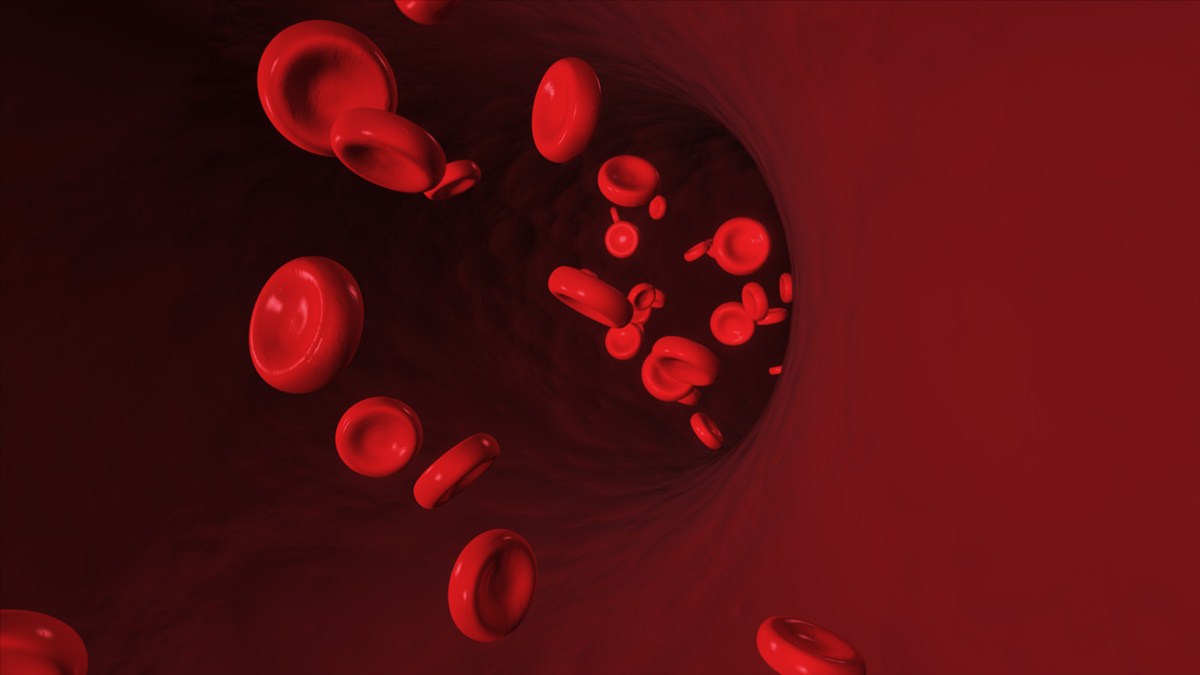If blood clots are present somewhere along the male urinary tract, the color of a man's urine may change to (a pale to dark) pink or even become red — an alarming symptom that will certainly cause men to be concerned. What should you know about this alarming symptom, its possible causes, and what should you do next?
First off, discolored urine is often not an isolated symptom. Passing blood clots through the urine can further cause pain. The pain can be localized to a specific spot, and providing details regarding this pain can help a physician to make the correct diagnosis and determine the course of treatment.
Also, a man experiencing the symptom of blood-tainted urine, as manifested through a pink to red color, should first try to determine whether that red color of the urine in fact comes from blood, since certain medications and foods — like beet root — can also cause urine to turn red, in which case there is no cause for worry at all. Nevertheless, it is advisable to seek medical attention in the event that you notice the occurrence of pink or red urine, as it can be a sign of a serious medical condition.

Causes of Blood Clots in Urine
Blood in the urine is a condition medically known as hematuria, a term that combines the Greek words for "blood" and "urine". There are two types of hematuria; macroscopic or gross hematuria, and microscopic hematuria. Macroscopic hematuria is blood in the urine that is visible with the naked eye, while microscopic hematuria represents blood in the urine that can be seen only under a microscope.
Blood in the urine can have many causes and may result from anything from a minor and ultimately completely harmless inflammation to cancer. However, the leading cause of blood clots in urine is a urinary tract infection (UTI), which is a bacterial infection anywhere along the urinary tract and most commonly in the bladder. Kidney, bladder, or ureter stones are also common causes of blood clots in men's urine. An enlarged prostate can be responsible for blood clots in the urine of men, as well.
Urinary tract injuries may lead to blood clots in urine. Cancer of the bladder, kidneys and urethra are always accompanied by blood clots in the urine. Renal vein thrombosis, nephritic syndrome and the genetic blood disorder called hemophilia can be several more causes of blood clots in urine.
Symptoms of Blood Clots in the Urine
Blood in the urine is itself a symptom pointing to an underlying medical problem, and although it is one that provides valuable information, it is certainly not a diagnosis.
This symptom can be accompanied by other symptoms that patients should watch out for when they spot this first sign. Passing blood clots in the urine can cause pain in the lower abdomen, lower back, and groin. A burning sensation or pain when urinating are both common symptoms, too, which may indicate blood clots passing through the urethra. A more frequent need to urinate can be also present, especially in urinary tract infections, but even though the urge is there, voiding may be difficult.
Treatment for Blood Clots in the Urine
Treatment for blood clots in the urine is determined by the underlying causative health condition. Often, blood clots in the urine result from fairly minor problems and do not require medical treatment as the condition resolves on its own. When blood clots in the urine are due to a urinary tract infection, the treatment involves the use of antibiotics. If kidney stones are responsible for blood clots in urine, the patient will be advised to drink plenty of water. If hematuria is accompanied by pain, a doctor will prescribe pain relievers.
No matter what the possible cause of red-colored urine, your first point of call is your doctor, who will ask about your symptoms, examine you physically, and order urine tests if necessary.

















Your thoughts on this
Loading...